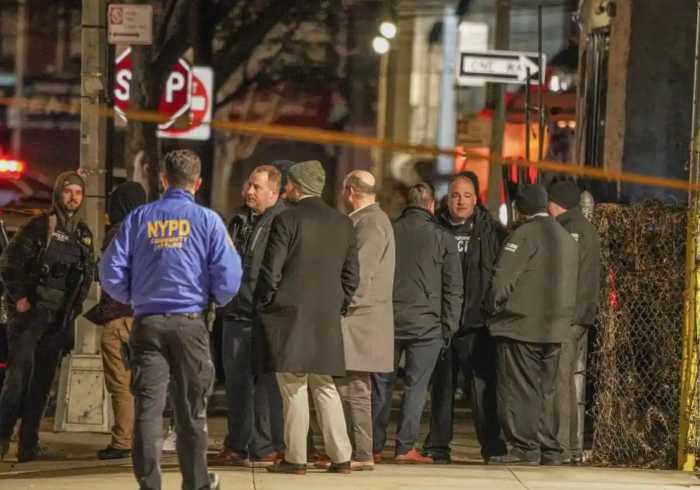By Scott Sieber
“The federal government predicts truck traffic to grow by 83 percent over the 1998 levels by the year 2020,” said Teresa Toro. New York City coordinator for the Tri-State Transportation Campaign. “It's like the Wild West out there. They are not made for our city streets.”Toro spoke to members of a sparsely attended West Flushing Civic meeting last Thursday who informed her that idling truck traffic along College Point Boulevard and Main Street cause traffic congestion that is only made worse by the area's busy bus traffic.To the civic members who were present at the meeting, Toro's warnings about the dangers of truck traffic only confirmed their fears that with local development booming, the burden imposed on local neighborhoods will only get worse.”For Flushing, we are the destination. There's no rerouting the trucks. This is the route they got to take,” said civic member Evergreen Chou. “Now Flushing is the destination of choice.”Citing statistics from federal government studies, Toro said in most areas throughout the city, the goods provided by trucks are a simple necessity, and truck drivers are forced to follow often confusing signs that can be misunderstood or missed altogether.But, she said, truck traffic should not be cast aside as a necessary evil since even those drivers who may know which way to go take the most convenient path – a decision that often takes big rigs illegally down residential streets. “And when trucks go off route, they bring their problems with them,” she said. “They're violating weight regulations, bridges are aging faster – a single tractor trailer causes as much road damage as 2,000 to 3,000 cars.”Such problems are rampant citywide, she said, as was evident this past summer when City Councilman Tony Avella (D-Bayside) asked the 109th Police Precinct to stake out trucks traveling off-route in Whitestone and College Point.Police ended up pulling over more than 100 trucks, 11 of which were able to show that they were on the correct route, while the rest were issued summonses.Toro said action taken by local elected officials and police is the most effective immediate step in curbing truck traffic.In another instance in Brooklyn, she said a similar truck stakeout produced a $70,000 fine for one truck for being overweight.In the long term, she said the city needs to revise and update truck routes and provide traffic calming measures, such as re-engineering the streets and sidewalks to make the roads narrower and thus discourage trucks.She also said rail freight and barge connections should be improved to accommodate more cargo.At the end of the meeting, civic members left with new ideas, and Toro packed up and said she would be back to help with any additional suggestions.”Whatever you want to do, to me it's all good,” she said. “There is just so much that has to be done about truck traffic.” Reach reporter Scott Sieber by e-mail at news@timesledger.com or by phone at 718-229-0300, Ext. 138


































